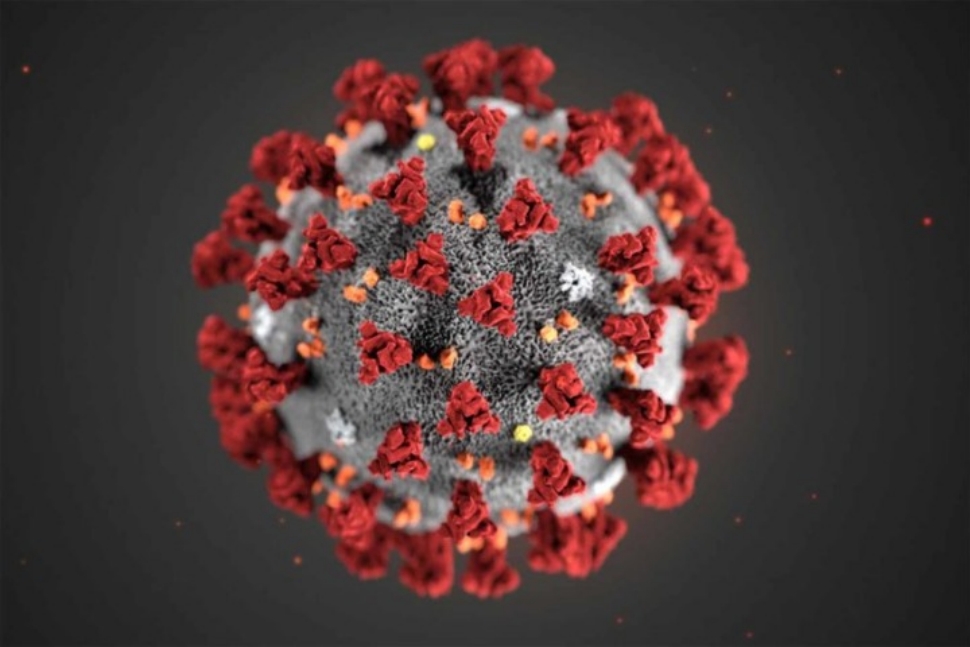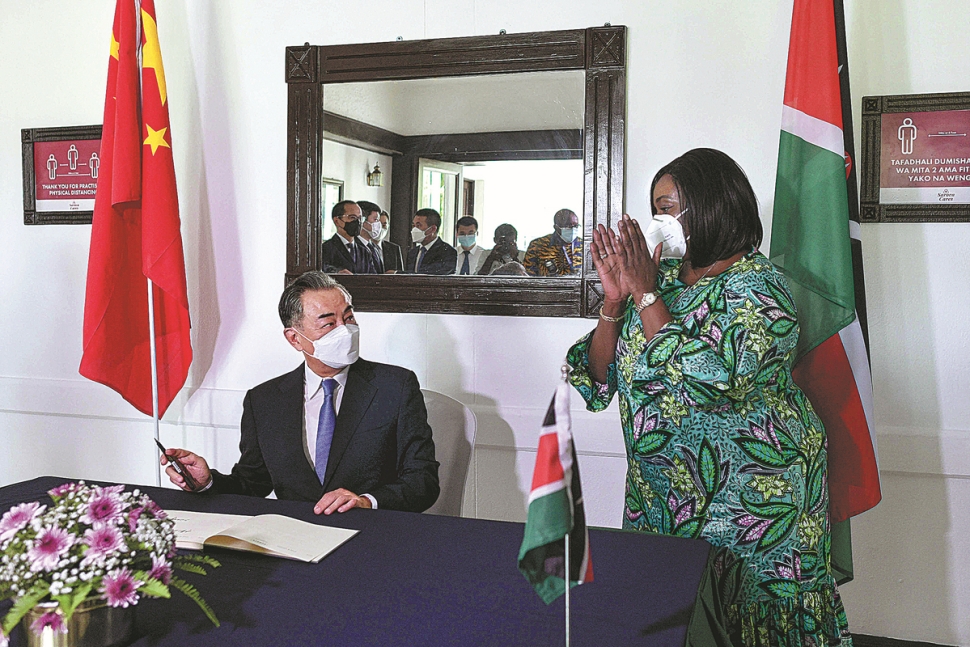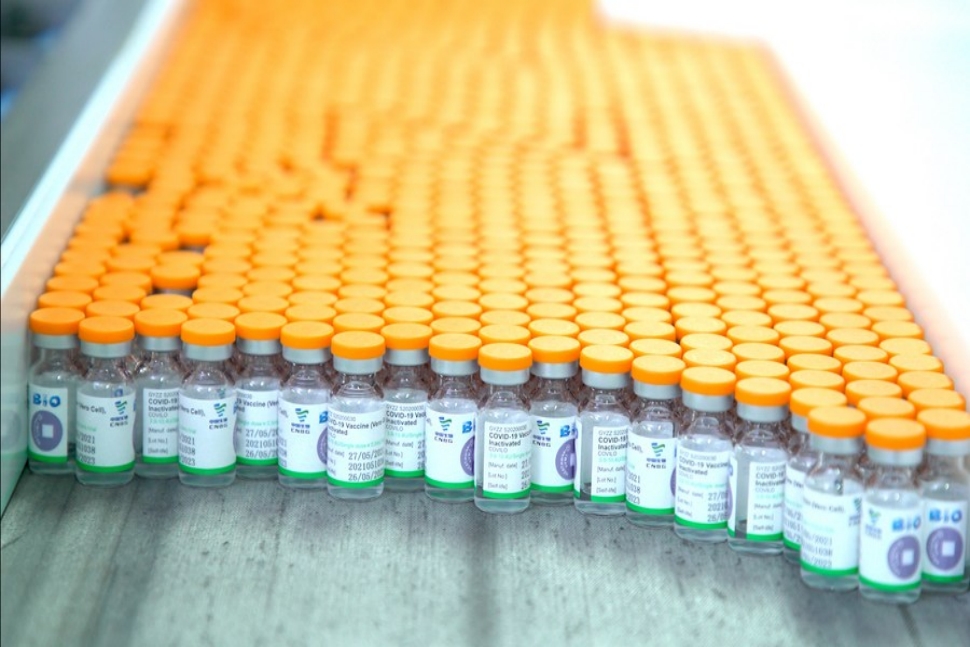trending topics
market reports
-

Registration Now Open: MEDICAL JAPAN 2026 OSAKA – Western Japan’s Largest Healthcare Trade Show
2026-02-10
-

MEDICAL JAPAN 2025 OSAKA Returns to Showcase Global Innovations
2025-02-17
-

Visit MEDICAL JAPAN 2023 TOKYO and take full advantage of the business opportunities!
2023-09-01
-

US to distribute 400 million free N95 masks at CVS, Walgreens in COVID fight
2022-01-21
-

Ethiopia receives additional 2.2 mln doses of Chinese-donated COVID-19 vaccines
2022-01-21
-

Hong Kong researchers say they develop novel material able to kill COVID-19 virus
2022-01-14
-

10 million more Chinese doses on way for Kenya
2022-01-14
-

Sino-African ties on track for a brighter future
2022-01-07
-

Efforts urged to boost COVID-19 vaccine production capacity in poor countries
2022-01-07
-

UAE approves Sinopharm's new protein-based COVID-19 vaccine
2022-01-07
The clinical trials that could change global medicine by 2025
2025-04-10
Different clinical trials are underway with the potential to change medicine in 2024 (Illustrative image Infobae)
The journal Nature Medicine published a list of 11 studies that were initiated to provide better answers to different problems that humanity still faces. What they analyze in each case
Clinical trials allow the efficacy and safety of drugs, procedures or interventions to be evaluated. If the results are positive, they can help improve the prevention, diagnosis, and treatment of diseases.
The journal Nature Medicine asked experts to tell the details of trials that have a potential impact on shaping medicine in the coming year 2025.
This put together a list of 11 studies that were initiated to provide better answers to different problems that humanity still faces, from the impact of heat waves due to climate change to cervical, breast and prostate cancers.
We also included interventions for rare disorders, such as prion disease, which mainly affects the central nervous system, and sickle cell anaemia, a genetic blood disorder. The initiatives, with expected results between 2025 and 2026, could redefine clinical practices and global health policies.

The list of studies addresses global problems such as climate change and its impact on health (Illustrative image Infobae).
In dialogue with Infobae, Karin Kopitowski, president of the Argentine Federation of Family and General Medicine and doctor of the Family and Community Medicine Service of the Italian Hospital of Buenos Aires, commented after reading the list of trials: "The selection of clinical trials is a reflection of the complexity of current challenges in health and the opportunities to innovate with equity."
The list ranges from advanced therapies such as gene editing for inherited diseases to more pragmatic interventions, such as cold roofs to mitigate the impact of heat on vulnerable communities.
"This shows that research should not only focus on cutting-edge technologies, but also on accessible and contextualized solutions, especially in a world with deep inequalities," Kopitowski said. Here are the details of the 11 trials:
1- Precision nutrition for better guides

They want to do the analysis of the base microbiome for more inclusive guides (Illustrative Image Infobae)
There are already dietary guidelines that are taken into account when indicating recommendations, but according to Leanne Redman, a physiologist at Louisiana State University, United States, they do not reflect the diversity of responses between people.
That's why, with funding from the National Institutes of Health, Redman is pursuing the "Precision Nutrition for Health" project, which explores how factors such as genetics, microbiome, and medical history affect individual responses to different foods.
The trial includes more than 8,000 adults, and looks at how three different eating patterns affect participants' health over two weeks.
They use statistical models and machine learning to identify individual characteristics that predict the effects of certain foods on human health.
The first results are expected to be published in 2025 and provide a more inclusive perspective on nutrition.
2- A gene therapy for prion disease

Sonia Vallabh, was a lawyer and became a researcher, to find a therapy for prion diseases/ Maria Nemchuk
Sonia Vallabh was a lawyer and decided to turn her life around after discovering that she has a genetic predisposition to develop prion disease.
It is a neurodegenerative disorder, currently untreatable, that usually appears in middle age. Vallabh did a PhD in biology at Harvard University together with her husband. She then went on to become a lead researcher at the Broad Institute, which depends on that house of study and the Massachusetts Institute of Technology (MIT), in the United States.
It is trying to develop a gene therapy to stop the production of prion proteins, through the use of antisense oligonucleotides, which were designed by the company Ionis Pharmaceuticals.
This intervention is in phase 1/2 and aims to evaluate safety and tolerability. It is given in the area around the spinal cord and brain. "Early treatment can preserve brain function," Vallabh said. The trial has 16 global sites, and the first results of the trial are expected by the end of 2025.
3- Cannabidiol is being tested for psychosis

At the University of Oxford, the use of cannabidiol (CBD) is being evaluated in three groups of patients at different stages of psychosis to investigate its efficacy, safety and tolerability. / University of Oxford
Psychosis is considered to occur when a person experiences a disconnection with reality. At the University of Oxford, UK, they are evaluating the use of cannabidiol (CBD), which is a chemical found in the Cannabis sativa plant, in three groups of patients at different stages of the disorder.
Philip McGuire, a professor of psychiatry and one of the study's authors, said efficacy, safety and tolerability are being investigated.
Participants are from 30 sites in 11 countries, and the trial covers around 1,000 people. The first results, expected in 2025, could provide evidence on CBD's ability to halt the progression of psychosis.
4 – A base edition for sickle cell anemia

An intervention for sickle cell anemia is developed through gene editing of hematopoietic stem cells. (Illustrative image Infobae).
David Liu is leading the "BEACON trial" that uses gene editing with the idea of having a treatment for sickle cell anemia. It consists of modifications in hematopoietic stem cells.
"The base edition has shown positive results in previous trials," he said. Although the trial faced challenges (such as the death of one patient attributed to side effects of chemotherapy prior to transplantation rather than the intervention being evaluated), researchers remain confident in the potential results.
5- Reflective roofs to reduce heat-related illness

In Burkina Faso, a study tries to reduce the impact of heat waves/ REUTERS/Zohra Bensemra/
In Burkina Faso, another innovative project is being carried out, but without drugs. Aditi Bunker, coordinator of the Health and Climate Change Intervention Working Group at the University of Heidelberg in Germany, is conducting a trial in Burkina Faso.
It assesses the impact of "cool" roofs on the health and well-being of communities vulnerable to extreme heat. According to the researcher, these roofs reflect solar radiation, lower the interior temperature and relieve thermal stress.
"We are training the local community to implement this affordable solution," he explained. The study included 600 households in 25 villages: indicators such as heart rate and blood pressure were measured for two years.
The results could support the mass deployment of that technology in regions affected by climate change.
6- Potential radiopharmaceuticals for prostate cancer

In the United States, the early use of a radiopharmaceutical for cases of metastatic prostate cancer is being evaluated (Illustrative Image Infobae)
Oliver Sartor, an oncologist at the Mayo Clinic, is working on the PSMAaddition trial, which is evaluating the early use of the radiopharmaceutical Lu-177 PSMA-617 for metastatic prostate cancer.
That intervention has already been approved for advanced cases, but it could revolutionize care if it proves effective in early stages.
With more than 1,100 patients under study, the trial measures radiographic progression-free survival as the primary outcome. Sartor highlighted in Nature Medicine the potential of this treatment as "a paradigm shift" in the management of prostate cancer globally.
7- Chatbots for cervical cancer detection

Is testing an educational chatbot designed to improve participation in human papillomavirus (HPV) screening programs (National Cancer Institute, USA)
Scientist Farida Selmouni, who works at the International Agency for Research on Cancer, France, is hopeful about the trial that tests the use of an educational chatbot to improve participation in human papillomavirus (HPV) screening programs. This pathogen can be transmitted through sexual contact with an infected person.
The chatbot was designed for women from disadvantaged areas, and gives quick and clear answers about cervical cancer self-management. The approach is based on previous qualitative studies and results are expected next year. If successful, it could significantly increase participation rates in early detection of cervical cancer.
8- Mobile tools for mental health

How to promote self-care in adolescents is a challenge for scientific research (Illustrative Image Infobae)
In Kenya, a trial is underway that addresses adolescent mental health through digital tools. Keng-Yen Huang, professor at New York University School of Medicine, USA It includes separate apps for teens and parents, which encourage self-care and parenting strategies.
It seeks to reduce violence and improve problem-solving skills. The results will measure the impact on participants' mental health and development.
9- Personalized breast cancer screening

They try to improve breast cancer prevention by personalizing interventions (Illustrative Image Infobae)
In France, Suzette Delaloge, an oncology specialist at the Institut Gustave Roussy, is driving the MyPeBS trial, which compares breast cancer screening strategies based on individual risks against the standard approach.
The researcher considered that the study's approach "could revolutionize prevention by personalizing interventions."
With more than 53,000 participants in six countries, the study measures the incidence of advanced cancer over a four-year period. The results promise to reduce overdiagnosis and unnecessary treatments.
10- Home gardening to combat malnutrition

Scientist Ina Danquah, a scientist at the University of Bonn, Germany, is conducting a trial encouraging the implementation of organic gardens in Kenya and Burkina Faso (University of Heidelberg)
The ALIMUS trial encourages the start-up of organic gardens to diversify the diet in Kenya and Burkina Faso. It is done to counteract the loss of nutrients in staple crops.
Ina Danquah, a scientist at the University of Bonn, Germany, explained that this locally designed approach seeks to improve height for age in children, a key indicator of nutrition. The results, expected by 2025, could inform future strategies against malnutrition caused by climate change.
11- Educational Games for Children with Autism

A study in the United States tries to provide an answer for children with autism/Freepik
Dennis Wall, a professor at Stanford University, USA, is working on a trial evaluating the impact of using a mobile game designed to improve the social integration of children with autism.
The game was made to encourage interaction with caregivers and collects data that personalizes the experience. The study, which involves children ages 2 to 8, could contribute to the development of accessible therapies to address symptoms.
"What I highlight from the studies that Nature Medicine mentions is the use of new technologies applied to improve health outcomes: artificial intelligence, mobile health, precision medicine to be able to provide a prevention strategy to women at higher risk of breast cancer, as well as reduce the number of mammograms among those at low risk," Dr. Silvina Arrossi, sociologist, human health researcher at Conicet and the Center for the Study of State and Society (CEDES) in Buenos Aires, told Infobae.
In particular, Arrossi said, "I find it interesting to highlight the chatbot that is being developed in France to increase screening with HPV testing among those women who usually do not do it. Because it uses artificial intelligence to respond to a demand from women that health systems cannot respond to."
The idea is that women who are offered the HPV test can use the chabot to obtain information and thus promote their participation.
Source: infobae



 My Member
My Member Message Center
Message Center











